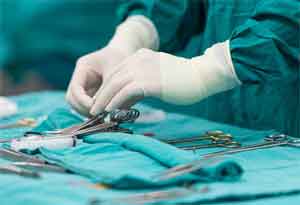- Home
- Editorial
- News
- Practice Guidelines
- Anesthesiology Guidelines
- Cancer Guidelines
- Cardiac Sciences Guidelines
- Critical Care Guidelines
- Dentistry Guidelines
- Dermatology Guidelines
- Diabetes and Endo Guidelines
- Diagnostics Guidelines
- ENT Guidelines
- Featured Practice Guidelines
- Gastroenterology Guidelines
- Geriatrics Guidelines
- Medicine Guidelines
- Nephrology Guidelines
- Neurosciences Guidelines
- Obs and Gynae Guidelines
- Ophthalmology Guidelines
- Orthopaedics Guidelines
- Paediatrics Guidelines
- Psychiatry Guidelines
- Pulmonology Guidelines
- Radiology Guidelines
- Surgery Guidelines
- Urology Guidelines
Nice guideline for Routine preoperative tests for elective surgery

This guideline covers routine preoperative tests for patients over 16 years of age who are having elective surgery and aims at decreasing unnecessary testing.This will also help in advising which tests to order before minor, intermediate and major or complex surgery, taking into account specific comorbidities (cardiovascular, renal and respiratory conditions and diabetes and obesity). Women Patients who are Pregnant or people having cardiothoracic procedures or neurosurgery have not been covered in the guideline.
The tests covered by this guideline are:
- chest X‑ray
- echocardiography (resting)
- electrocardiography (ECG; resting)
- full blood count (hemoglobin, white blood cell count and platelet count)
- glycated hemoglobin (HbA1c) testing
- haemostasis tests
- kidney function (estimated glomerular filtration rate, electrolytes, creatinine and sometimes urea levels)
- lung function tests (spirometry, including peak expiratory flow rate, forced vital capacity and forced expiratory volume) and arterial blood gas analysis
- polysomnography
- pregnancy testing
- sickle cell disease/trait tests
- urine tests.
Recommendations relevant to all types of surgery
Before offering tests before surgery patients need to be imparted information according to recommendations made in the NICE guideline and it should be ensured that the results of any preoperative tests undertaken in primary care are included when referring people for surgical consultation.Moreover, any medicines people are taking should be taken into account when considering whether to offer any preoperative test.
1.Pregnancy test
- On the day of surgery, sensitively ask all women of childbearing potential whether there is any possibility they could be pregnant.
- Make sure women who could possibly be pregnant are aware of the risks of the anesthetic and the procedure to the fetus.
- Document all discussions with women about whether or not to carry out a pregnancy test.
- Carry out a pregnancy test with the woman's consent if there is any doubt about whether she could be pregnant.
- Develop locally agreed protocols for checking pregnancy status before surgery.
- Make sure protocols are documented and audited, and in line with statutory and professional guidance.
2. Sickle cell disease or sickle cell trait tests
- Do not routinely offer to test for sickle cell disease or sickle cell trait before surgery.
- Ask the person having surgery if they or any member of their family have sickle cell disease.
- If the person is known to have sickle cell disease and has their disease managed by a specialist sickle cell service, liaise with this team before surgery.
3.HbA1c testing for people without diagnosed diabetes
- Do not routinely offer HbA1c testing before surgery to people without diagnosed diabetes.
4.HbA1c testing for people with diabetes
- People with diabetes who are being referred for surgical consultation from primary care should have their most recent HbA1c test results included in their referral information.
- Offer HbA1c testing to people with diabetes having surgery if they have not been tested in the last 3 months.
5.Urine tests
- Do not routinely offer urine dipstick tests before surgery.
- Consider microscopy and culture of midstream urine sample before surgery if the presence of a urinary tract infection would influence the decision to operate.
6.Chest X‑ray
- Do not routinely offer chest X‑rays before surgery.
7.Echocardiography
- Do not routinely offer resting echocardiography before surgery.
- Consider resting echocardiography if the person has a heart murmur and any cardiac symptom (including breathlessness, pre‑syncope, syncope or chest pain)
- signs or symptoms of heart failure.Before ordering the resting echocardiogram, carry out a resting electrocardiogram (ECG) and discuss the findings with an anaesthetist.
For reading full guidelines log on to :
elective surgeryFetusGlycated hemoglobinhaemostasis testsHbA1cNICE guidelinespolysomnographypregnancy testpreoperative testsurine tests
Source : NICE GuidelinesNext Story
NO DATA FOUND

Disclaimer: This site is primarily intended for healthcare professionals. Any content/information on this website does not replace the advice of medical and/or health professionals and should not be construed as medical/diagnostic advice/endorsement or prescription. Use of this site is subject to our terms of use, privacy policy, advertisement policy. © 2020 Minerva Medical Treatment Pvt Ltd